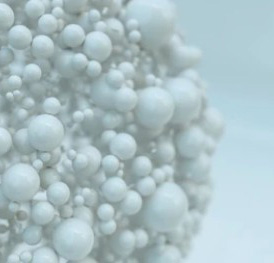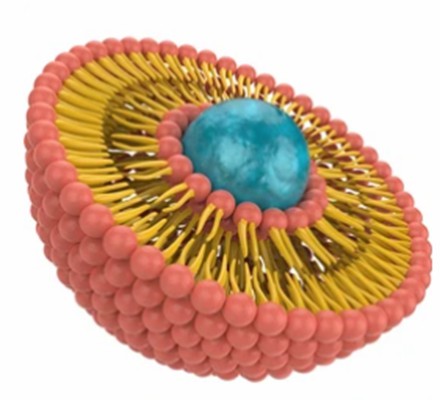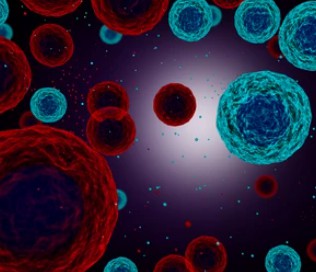-
- Development of Small Molecule Drug for Stroke
- Targeted Stroke Drug Development
- Stroke Drug Development Targeting Noncoding RNAs
- Stroke Drug Development Targeting PSD-95
- Stroke Drug Development Targeting Tau
- Stroke Drug Development Targeting Heat Shock Protein 70
- Stroke Drug Development Targeting Notch
- Stroke Drug Development Targeting Guanosine
- Stroke Drug Development Targeting Nogo-A
- Stroke Drug Development Targeting Nrf2
- Stroke Drug Development Targeting DAPK1
- Stroke Drug Development Targeting AMPK
- Stroke Drug Development Targeting Caveolin-1
Stroke Drug Development Targeting Cell Death- Stroke Drug Development Targeting Ferroptosis
- Stroke Drug Development Targeting Pyroptosis
- Stroke Drug Development Targeting Necroptosis
Stroke Drug Development Targeting Different Cell TypesStroke Drug Development Targeting Other Components- Stroke Drug Development Targeting Mitochondria
- Stroke Drug Development Targeting Autophagy
- Stroke Drug Development Targeting Epigenetic Mechanisms
- Stroke Drug Development Targeting Blood Brain Barrier
- Stroke Drug Development Targeting Excitotoxicity
- Stroke Drug Development Targeting NMDAR
- Stroke Drug Development Targeting The GluN2B Subunit of NMDAR
- Stroke Drug Development Targeting Glutamate
Development of Drug Delivery Systems for Stroke Treatment
- Development of Nanoparticle Drug Delivery Systems for Stroke Treatment
- Development of Liposome-Based Drug Delivery Systems for Stroke Treatment
- Development of Exosomes Drug Delivery Systems for Stroke Treatment
Drug delivery has long been a thorny problem in tackling brain diseases. The same is true for stroke, an important member of brain disease. Of the 50 new drugs approved in 2021, only eight were for neuropsychiatric disorders. This data, however, presupposes an increasing trend in the number of new neuropsychiatric drugs approved over the past decade. Currently, there is no effective and universally applicable treatment for stroke. One of the main reasons for this is the challenge of delivering treatment to the stroke site because of the blood-brain barrier. Although strokes can disrupt the integrity of the blood-brain barrier to varying degrees, the magnitude and time frame of BBB disruption is incompletely understood because of many limitations. Nanoparticles, liposomes, and exosomes are now common drug delivery vehicles for the brain. They have different strengths and different processing methods that allow for efficient delivery of drugs to the brain. Accordingly, Ace Neuroscience provides comprehensive services to facilitate the development of nano drug delivery systems, liposome drug delivery systems, and exosome drug delivery systems in the field of stroke while accelerating the pace of stroke treatment.
Development of Nanoparticle Drug Delivery Systems for Stroke Treatment

Research has proved that the nanomedicine delivery system is an efficient and safer way to deliver drugs. Since the size of nanoparticles with smaller than 200nm, they can permeate the "leaky" tissue with enhanced permeability and retention effects to facilitate drug delivery. Nanoparticles can increase the concentration of drugs on the surface of BBB cells compared with traditional preparations, or nanoparticles can increase their circulation time in the blood, providing drugs with more opportunities to cross the BBB. In addition, nanoparticles in general have the advantage of multi functionalities. Nanoparticles can carry drug payloads with the ability to control drug release and alter drug pharmacokinetic advantages. In view of this, Ace Neuroscience offers comprehensive services to facilitate the development of targeted nanoparticle drug delivery systems.
Development of Liposome - Based Drug Delivery Systems for Stroke Treatment

The drug delivery system based on liposomes can significantly prolong the circulation time of macromolecular drugs in vivo, improve the delivery of drugs into cells, and improve efficacy. Although the current research on liposomes has been relatively rich. However, there are still some limitations, such as low drug loading, poor stability, high production cost, potential toxicity, and side effects of some drugs. In view of this, Ace Neuroscience offers comprehensive services designed to address these challenges and facilitate the development of liposomal drug delivery for stroke therapy.
Development of Exosomes Drug Delivery Systems for Stroke Treatment

With the deepening of research, the veil of exosomes has been gradually unveiled. Exosomes can deliver compound drugs, nucleic acid drugs, and protein drugs. As a drug delivery carrier, exosomes have the advantages of biocompatibility, biostability, and targeting. At the same time, exosomes have many therapeutic effects on diseases. For example, in the pathological process of stroke, some exosomes have been proven to relieve neuroinflammation, restore neurological function, and other activities. Therefore, the exosome delivery system can also play a certain therapeutic effect while delivering drugs.
If you would like to learn more about our services, please feel free to contact us.
All of our services are intended for preclinical research use only and cannot be used to diagnose, treat or manage patients.Related ServicesAce NeuroscienceWe are committed to accelerating progress in stroke research and drug development.
Connect with usCopyright © Ace Neuroscience. All rights reserved.0Inquiry Basket